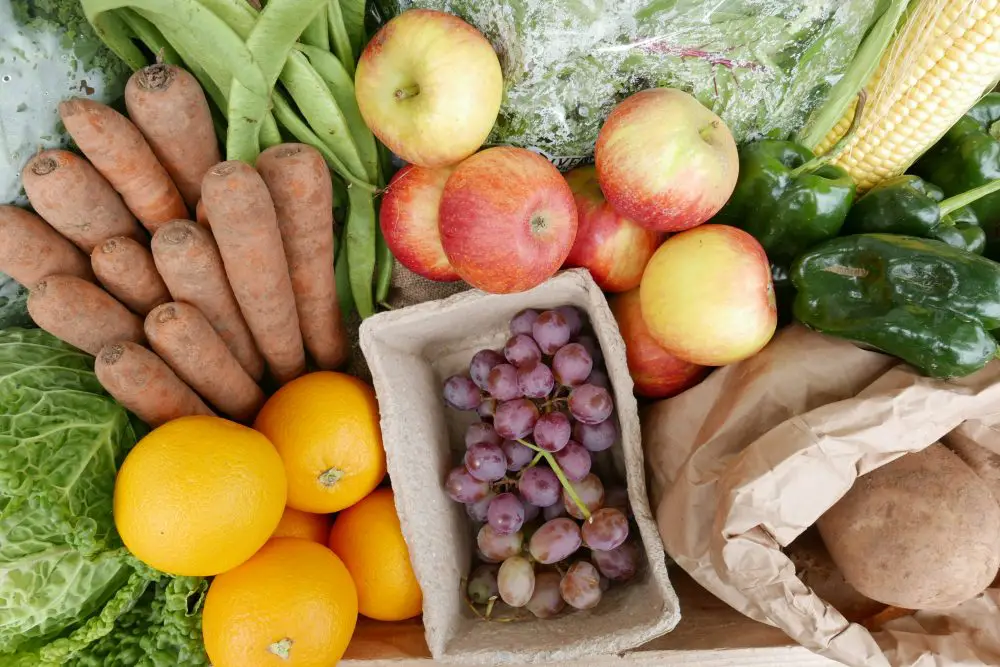
Although I chose not to take on the challenge fully, it did result in a large proportion of my diet being plant-based, purely for the reason that we eat our evening meal together and had very little meat, fish and dairy in the house. I’ve actually really enjoyed the challenge of cooking fully vegan meals. We don’t eat a lot of meat at home anyway, once a week at best, but as soon as you eliminate dairy and eggs, cooking suddenly requires a little more effort.
My thoughts on plant based eating
Personally, I have a lot of respect for people who choose to live a vegan lifestyle but right now, it’s not for me. I am a keen supporter of organic and bio-dynamic farming techniques and we only eat organic, locally sourced meat, fish, dairy and eggs at home. We also try to choose restaurants which source ethically and in those which don’t, we’ve decided to eat vegetarian. Plus, when we do eat meat it’s in moderation. I think that my flexitarian (almost entirely vegetarian) approach to diet is the right one but how do I really know for sure? My choices are having a positive an impact on the planet but is that enough? Surely an entirely plant-based diet is only going to be better if it’s all home grown and locally sourced because when you start to consider things like air miles, fair trade working conditions and the plastic involved in a lot of new meat substitute products and brands coming onto the market, it might not actually be any better for the planet.
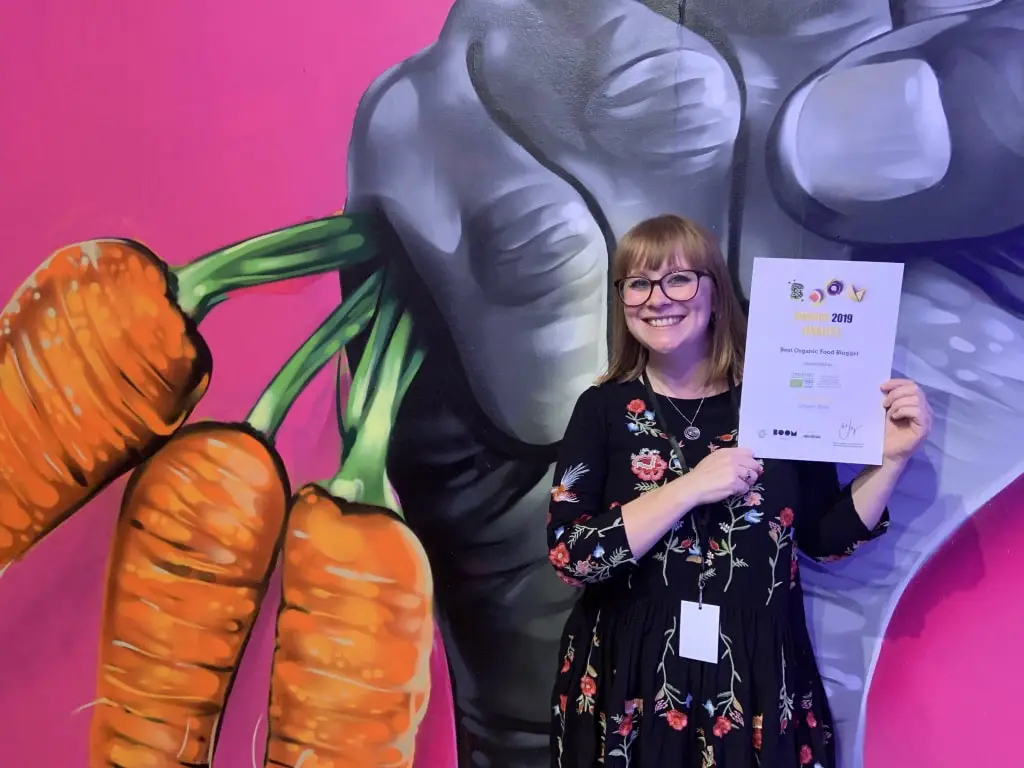
This is the kind of thing that keeps me up at night. Should we just be plant-based or is ethical shopping and focusing on organic enough? I enjoy meat and cheese and if I don’t have to, I’d prefer not to give them up.
The good…
So, for the month of February, we’ve eaten exclusively plant-based meals at home. Although a lot of what we’ve eaten has revolved around vegetables and mostly recognisable ingredients, we have purchased some items which are new to our household. Meat alternatives, veggie sausages and man-made proteins. Of everything we tried, one brand really blew us away: Oumph. This is a range I’m really keen to explore more, and will continue to purchase. We tried the burgers last weekend and they are excellent.
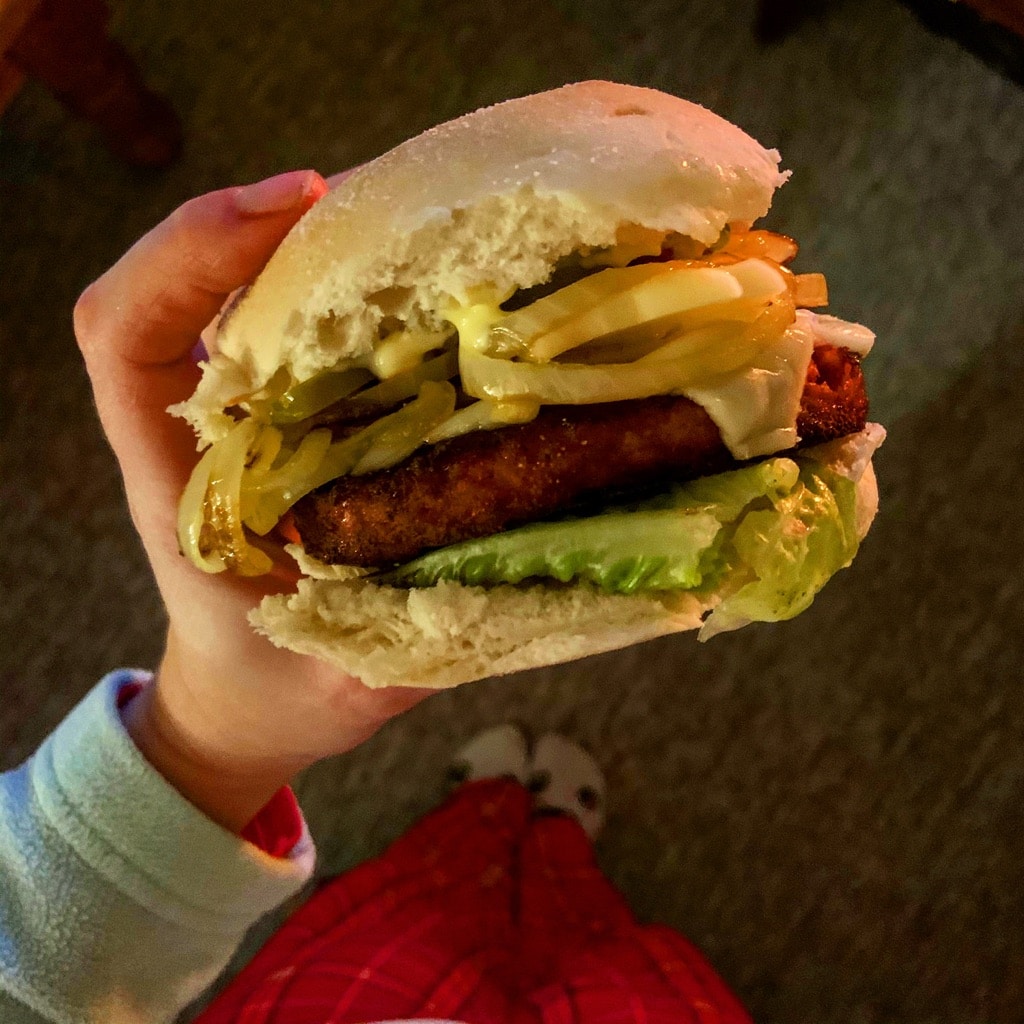
One of the things I’ve been sceptical about recently with the rise of meat alternative brands is the provenance of their products. Specifically those which are soy based. Often the packet doesn’t say where it’s come from or how it was grown and that concerns me when so much damage is being done to grow soy crops through monoculture farming and deforestation. Whilst the bulk of this is grown for animal feed, increasingly its being used for our food. Oumph are different and I am so happy to have discovered their brand. On their website they talk about the fact that they grow their soy sustainably, in Europe. They don’t buy any soy from South America and are an active partner in a voluntary initiative which works towards a more responsible production of soy the world over.
And the ugly…
It’s clear to see that there is a proliferation of plant based food and ‘meat alternatives’ on the market now. Every Tom Dick and Harriet are jumping on the band wagon. While that isn’t necessarily a bad thing, I do think we should proceed with caution. Meat free doesn’t automatically equal good.
We tried a couple of very disappointing examples – memorably, suspect textured patties from Wicked Kitchen and spongy bland meatballs and dry as hell sausages from Aldi. These items added nothing to the plate and quite frankly, an extra floret or two of broccoli or a bigger pile of rice would have been preferable. Aside from hit and miss taste and texture, the one thing which concerned me most was the lack of information on where and how certain these products are grown and produced. Are they ethical? We don’t know. We display this information on meat, fish and vegetables as standard now so why not on these new products?
Really, I’m talking about soy crops and where they come from. Aldi have promised that by 2025, their soy will be sustainably sourced but right now? We have no idea. We tried the Vivera bacon pieces too. They were moreish but pretty fake tasting and full of flavourings (although we still polished the lot off). Looking on their website, they mention that they ‘smart source’ their soy from North America and China but make no reference to it being sustainable in any way.
Cheese has also been interesting. I just don’t think it’s quite there yet. Violife has a plasticky feel and doesn’t melt properly. There’s the ex-dairy cheese maker, Sumear, who makes and sells very good plant-based cheese down at Tobacco Factory here in Bristol but as far as the supermarkets go, I don’t think we’re there… yet.
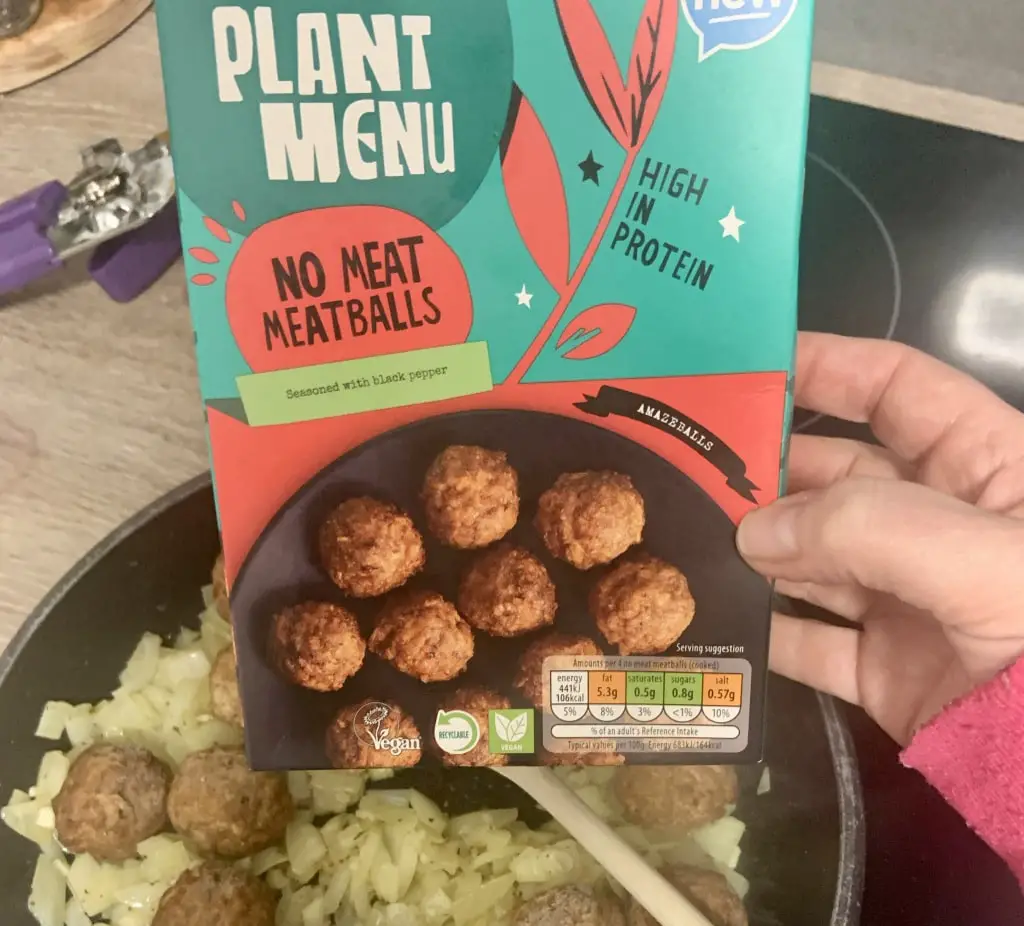
Further reading
Lots of my friends are vegan and lots aren’t. They have equally valid arguments for their choices. I don’t really know what the answer is and need to rectify this. I need to decide whether I continue to eat a flexitarian diet or move closer to complete plant based eating. We have a plastic free, organic veg box delivered weekly and rarely go to the supermarkets but is this enough? Should we be eating meat, dairy and eggs at all? Honestly, I don’t know.
I’m trying to read as much as I can in order to form an educated opinion. If you want to do the same, I’d recommend reading some of Joanna Blythman’s articles. I’m really enjoying her discourse on this topic and I’d value a discussion on it.
Although it’s a few years old now, I’d recommend reading Farmeggedon by Philip Lymbery. He’s the CEO at Compassion in World Farming (CIWF) which fights for higher animal welfare rights and he really knows his stuff. The reason I like this book is that CIWF does not advocating giving up meat. They fight to stop the production of cheap meat which damages the planet and acts inhumanely towards animals. The author himself eats meat.
Next on my list to read is Eating Animals by Jonathan Safran Foer and I know that there are a couple of Netflix documentaries I need to watch too. If you know of more, let me know!
I’m genuinely hoping to open up the conversation with this post and I’d love to hear your thoughts. Do you eat meat? If you do, why, if you don’t why?
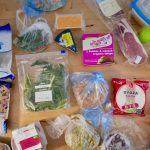


I agree with you – Although I am not Vegetarian, I try to eat a balanced diet and many of my meals are completely plant based. Some of the meat alternatives on the market are HORRIBLE , but there are a few good ones.
It’s just about trying until you find the ones you like.
I am working on a flexitarian approach – I love my veggies but I do also love the occasional meat dish, ethically reared products of course. And I also think that we need to consider the environmental impact of our veggies too!
We’re definitely a flexitarian household although most recently, it’s been more vegetarian. That said, we have some organic lamb steaks in the freezer for Friday night and I’m really looking forward to them.
Thanks for initiating debate about this. Like with all food choices, there are no absolute right or wrong answers – it comes down to what YOU value and prioritise and what changes YOU are willing to make to promote those priorities. Your answers will be different according to whether you are avoiding meat for animal cruelty, health or planetary welfare reasons and I think as long as you can make a cogent and consistent argument for your position, I think we should live and let live. What I am less comfortable with is virtue signalling and people insisting that there is only one right answer for everyone! Great post 🙂
Thanks Jeanne, and sorry for not responding sooner! I really agree with what you’ve said here and the virtue signalling is something I’ve seen done too and do not like. We have to do what’s comfortable for us and at the end of the day, maybe you’re right, there’s no ONE answer.